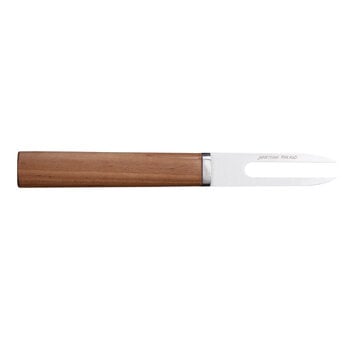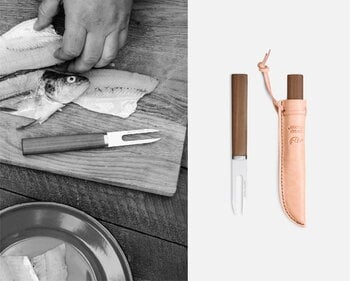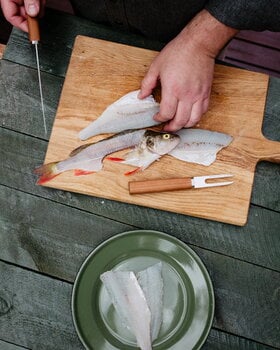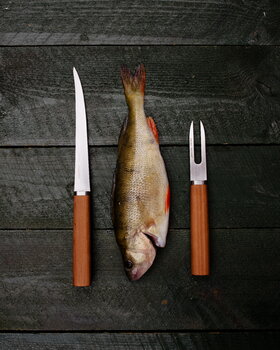The Cabin Chef fish fillet fork by Marttiini makes it easier to fillet not only by keeping the fish firmly in place, but also by protecting your fingers during the process. In the camping kitchen, the stainless steel fillet fork can also be used as a substitute for a spatula or kitchen tweezers.
The handle of the fish fork is shaped so that it feels comfortable and firm in the hand whatever the grip may be. In addition to the form, the handle’s material was also chosen for its ergonomic properties: thermally modified birch feels warm and pleasant to touch and its matte finish ensures a good grip even in wet conditions. The material is not only durable, but also ages beautifully.
The Cabin Chef fillet fork is part of the eponymous knife collection, designed by Harri Koskinen, that fuses unpretentiously beautiful design with utmost functionality. Created in collaboration with Marttiini and top chef Pekka Terävä, the collection was inspired by the unique charm of Nordic nature: it offers all the knives you could need for handling nature’s gifts in the camping or cabin kitchen as well as when cooking at home. The Cabin Chef knives are made in Finland and come with a traditional natural leather sheath.











